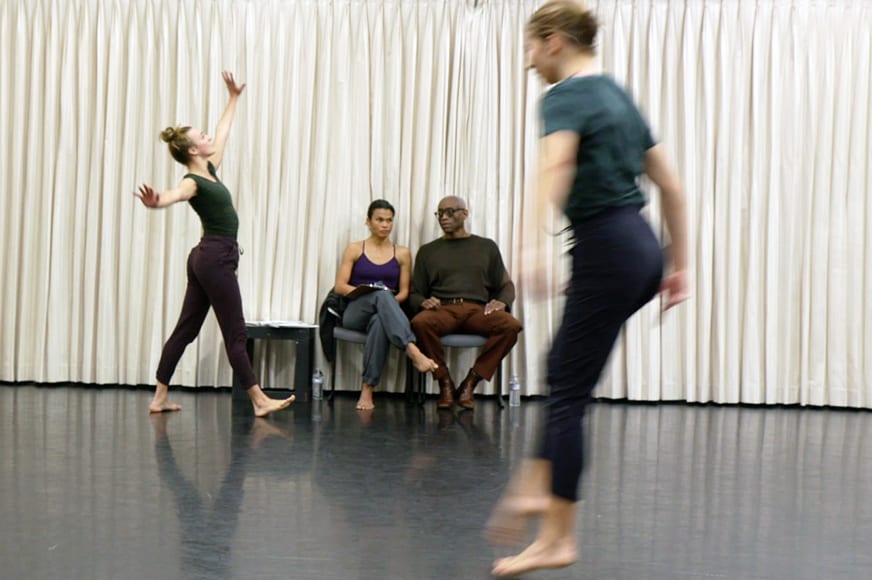
Associate Professor and Chair of Dance Rosalynde LeBlanc Loo is the 2020 recipient of LMU’s inaugural Award for Excellence in Extramural Funding. Loo was recognized for her work producing and co-directing a feature-length documentary film entitled, Can You Bring It: Bill T. Jones and D-Man in the Water, a documentary about the challenge of art in desperate times.
“Receiving this award feels like wonderful acknowledgement and recognition of the past seven years of tireless work,” said Loo. “Behind any award or accolade are the myriad rejections and failures, and the life of this project is scarred with tons of those. But it takes more than a million no’s to quit and only one yes to keep going. This award is a ‘yes.’”
In 2015, Bill T. Jones formalized the teaching of his legacy by creating an educational partnership between his company and Loyola Marymount University. Loo, who danced for the Bill T. Jones/Arnie Zane Company, had already begun producing the documentary as an historical examination of “D-Man in the Waters” when she assumed the directorship of the educational partnership between LMU and the dance company.
“Through a series of interviews, archival material, and unique cinematography of movement, the documentary reveals the stories of love, loss, and resurrection behind the creation of one of the most important dances to come out of the age of AIDS,” said Loo about her work. “In 1989, Bill T. Jones’s pivotal work “D-Man in the Waters” gave physical manifestation to the fear, anger, grief, and hope for salvation that his company felt as they were embattled by the AIDS pandemic. What does it mean, therefore, to reconstruct the dance today on a group of young artists?”
LMU dance students were deeply involved in Loo’s project, as the reconstruction and performance of the dance serves as the narrative spine of the film. Additionally, LMU School of Film and Television production students comprised the crew for the campus shoots, and students were involved in varying capacities from transcribing interviews, to assistant editing, to online marketing.
According to Loo, “Learning a historic dance is inherently ethnographic research because infused within the details of the movement – the carriage of the body; the parts of the body that are moving and how they are moving; and the relationships of bodies to each other – are the aesthetic and moral values of the individual within their culture. By absorbing the movement, one is also absorbing the cultural habitudes. The film, as well as much of my other creative work, stem from this idea.”



